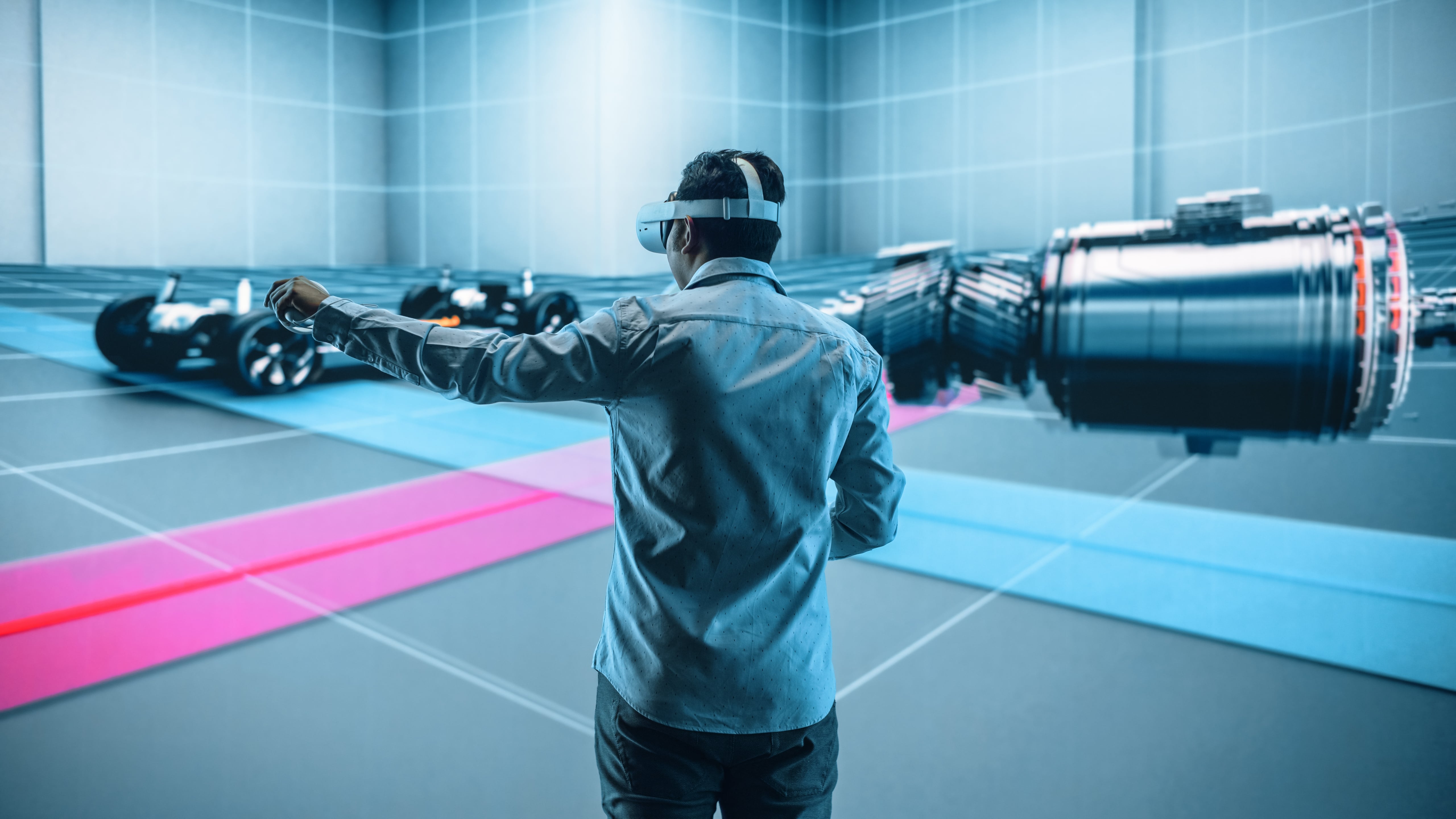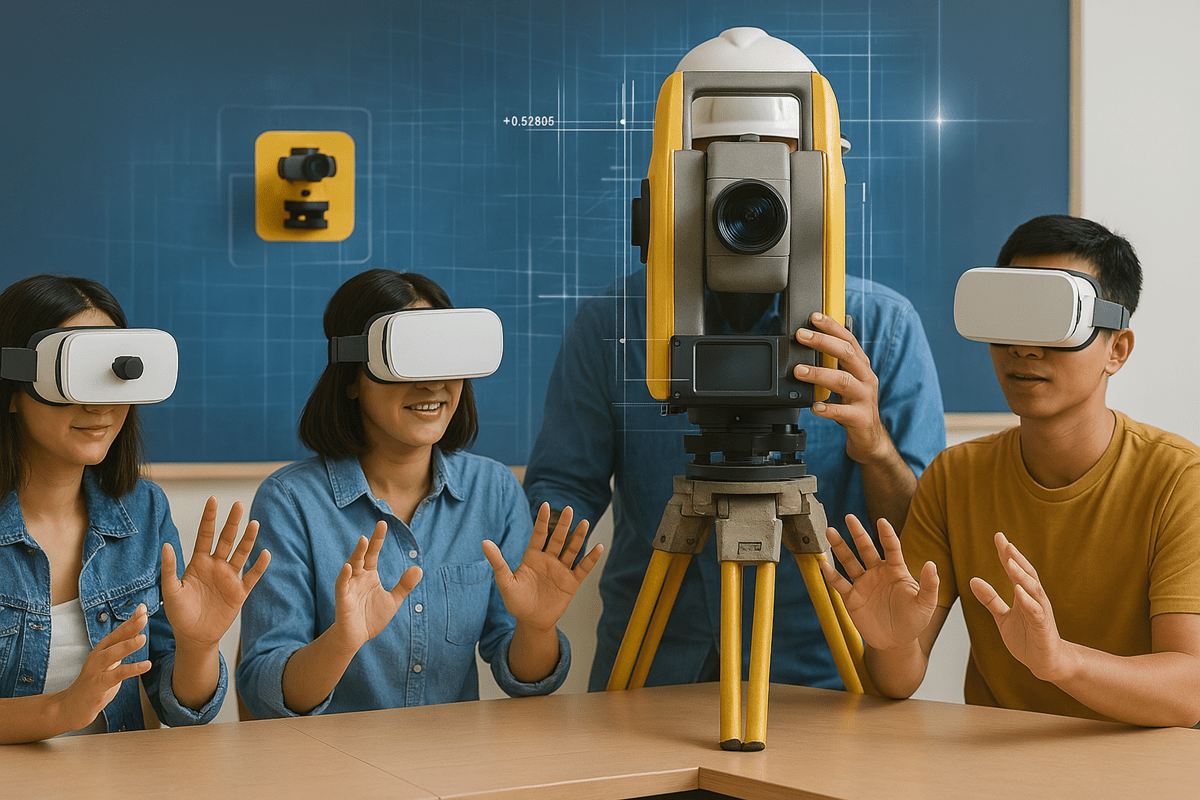Metaverse in Engineering Education

Engineering is one of the most vital branches of science. No wonder why there are thousands of engineering colleges across the globe. Where some institutes are still using the traditional way of teaching, some are combining latest technologies into it. Example: metaverse in engineering education.
But there is one common thing. All of these institutes focus on making an engineer with a robust knowledge base and credentials. Let us understand why VR in engineering education is vital.
Know About Engineering Education.
How many gadgets do you use in a day?
Let us list out some of them. You may use the TV for entertainment, a washing machine to clean clothes, and most importantly, a smartphone or tab or iPad, or computer as you are reading this blog. All or some of these gadgets are essentials in your life. All these techs are there because an engineer is working hard to make that technology usable. Rather you are surrounded by such technological advances.
Engineering education is the base of many inventions that take place every minute. It has definitely enhanced the way we live.
The focus of engineering education is on developing many qualities and abilities in students. These include cognitive abilities, logical thinking abilities, and problem-solving skills. In addition, engineering education lets students develop creative thinking abilities.
To simplify, an engineering education helps students invent, or reshape existing things to enhance their benefits.
Significance of Technologies in Engineering Education
Engineers can create technologies, and technologies can help make engineers too! The traditional engineering education was rigorous, yet had limited learning opportunities.
Today, the modern education system that uses various technologies which enhance the educational experience, improve knowledge and implementation and constantly imbibe innovation.
For example, artificial intelligence helps digital education systems curate tailored content for students. E-learning connects students from any corner of the world and enables them to study from anywhere.
Furthermore, there are some technologies that are massively changing the landscape engineering education. So let us take a look at them.
Virtual Reality
Virtual reality can have its significance in many domains worldwide. In engineering education, many institutes are using it widely. Its potential to create virtual labs plays a vital role in developing an experimental approach towards education.
In addition, it is a fully immersive experience that also supports simulation based experiential learning. These two features can be a boon to engineering education.
 Get the App from Meta Store: Download Now
Get the App from Meta Store: Download Now
Augmented Reality
As you already know, an engineering education requires a combination of theoretical guidance and practical implementation. Augmented reality that can be experienced without any special VR set can be helpful in such cases.
Electrical, mechanical, electronics, civil, and many other engineering branches can benefit from AR in engineering education.
Let us learn about one more technology that has the potential to nurture the engineering education system- metaverse.
The Educational Metaverse World
The metaverse is a new technology. Though its concept has origin goes back to the 1990s, Mark Zuckerberg highlighted it when he announced 'Meta'. From then to the point has reached to seek the development of metaverse in every second field.
Metaverse is the extension of various technologies, or even some call them a combination of some powerful technologies. These technologies are augmented reality, virtual reality, mixed reality, artificial intelligence, blockchain, and a 3D world.
This technology is still under research. However, the metaverse seems to make a significant difference in the education domain. Also, its feature of connecting students across the world with a single metaverse platform may bring a positive change. But, the metaverse is not only about remote learning. It is much more than that.
• The Globe-News Wire says that the metaverse market in education will have a value of USD 94.9 billion in 2030.
Let us know about its value for engineering learning.
Metaverse in Engineering Education
As previously discussed, the metaverse will promote immersive learning in higher education is under rigorous research in various domains. Though a large number of institutes have not adopted it yet, the result from the ones who opted for it is considerable.
A team of researchers from the Republic of Korea worked on investigating the impact of VR-based metaverse in engineering learning. The results were of mixed approaches from students.
Also, the growth rate for responses was positive. Moreover, there was a significant response from educators or teachers, and they seem to believe in this method of non-face-to-face learning method over traditional methods.
What Changes Can a Metaverse Bring to Engineering Education?
The Covid pandemic emphasized how vital e-learning or virtual learning is!
That does not end there as with technological advancements, people were able to conclude that metaverse can be a powerful learning platform in engineering. Also, an engineering study demands a thorough knowledge of basics with some experiments or laboratory experience. With the metaverse, students can avail this advantage of using immersive laboratory and virtual education material.
Often, not all students get a chance to perform an experiment when they learn about any topic. Moreover, there are time constraints as well. However, all these things can be eliminated with the metaverse world.
Another benefit of the metaverse is teamwork or collaboration. Collaboration or teamwork may often be a problem in virtual learning. However, a lack of it can affect the professional growth of engineering students.
However, the metaverse can eliminate this issue as it offers vast opportunities for users to connect, socialize, find other users with the same interest, perform tasks together, and whatnot!
iXR's Role in Developing Technology-based Engineering Education
Technology enhances the way students learn. iXR Labs has been such a helping hand for students from science, medical science, and engineering domain.
It offers a comprehensive platform that enables a virtual reality-based educational model. K-lab for engineering is the product that nurtures simulation-based, immersive engineering learning experiences.
Conclusion
Technologies such as augmented reality, virtual reality, and metaverse in engineering education are boon to students. They help them learn, acquire knowledge, perform various experiments in a virtual environment, etc. Moreover, they let students learn in an immersive way!
.png)
.png)



